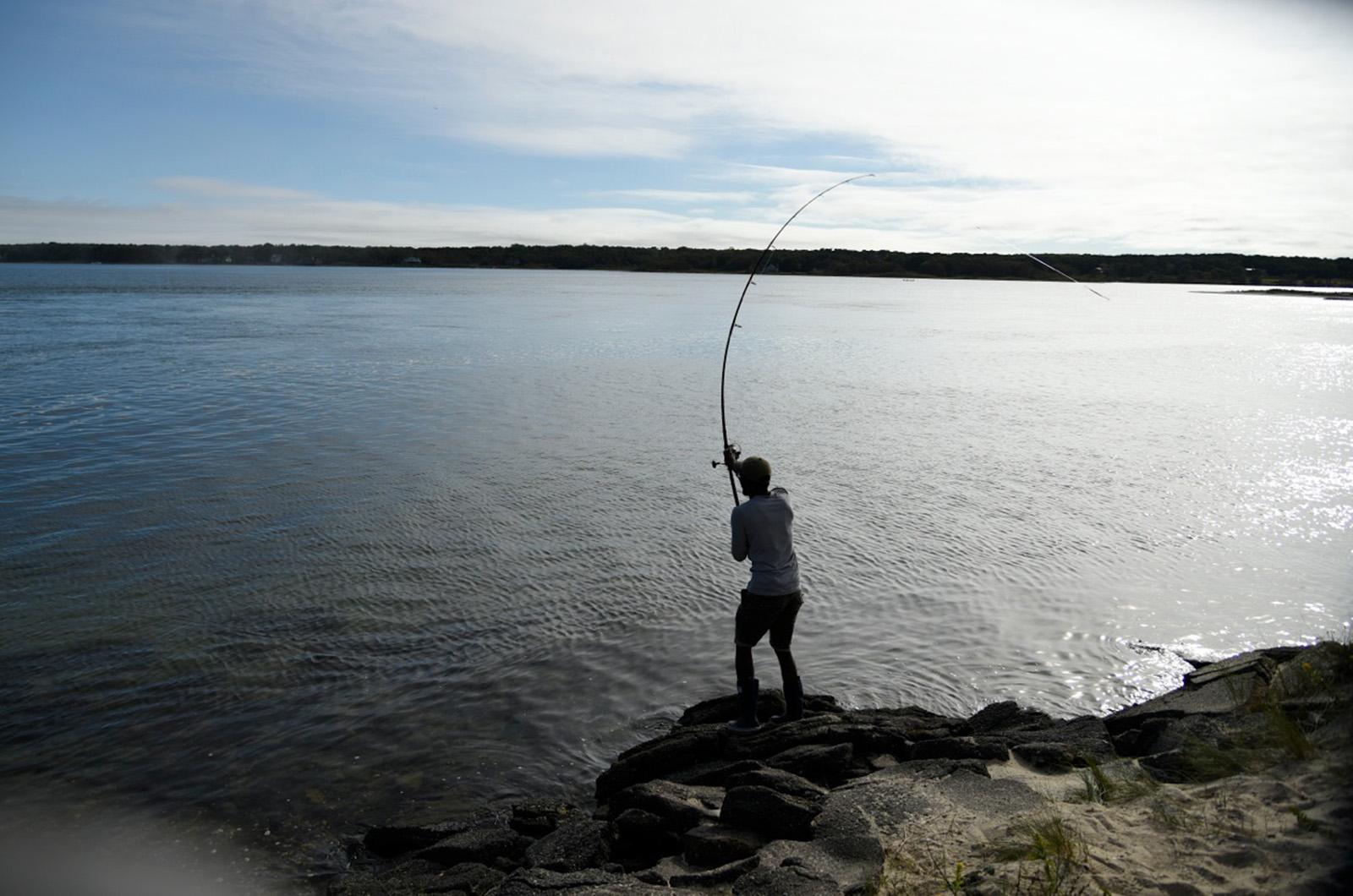New state septic regulations originally proposed for the Cape, South Coast and the Islands will now only go into effect on Cape Cod, state officials said this week.
The Massachusetts Department of Environmental Protection (DEP) released its updates to the Title 5 septic regulations Wednesday but decided, after extensive public comment from coastal communities, to narrow the regulations to the arm-shaped peninsula.
Now, communities on the Cape will be required to develop plans to mitigate nitrogen in certain sensitive watersheds, or otherwise be forced to upgrade thousands of private septic systems — a multi-million-dollar proposition.
Though there is no longer a looming mandate from the new regulations for Martha’s Vineyard, Island officials say they are still forging ahead with local wastewater initiatives and nitrogen mitigation work in order to keep local waters clean.
“We’re not sitting in place,” said Adam Turner, the executive director of the Martha’s Vineyard Commission.
A draft version of the update to Title 5 was first released by the DEP in October 2022, followed by a public comment period that included five public hearings and more than 1,000 comments.
The draft proposed designating certain coastal communities impacted by nitrogen run-off from septic systems as “nitrogen sensitive areas.”
Once that designation is made, new and existing properties in the area would have to install “innovative/alternative” septic systems that are better able to remove nitrogen within five years. The finalized regulation extends that timeline by two years.
Towns could be exempted from that requirement, however, if they apply for a 20-year watershed permit with the DEP to address nitrogen pollution in a more comprehensive way.
The regulatory process was initiated after the Conservation Law Foundation, a New England-based legal advocacy group, filed a lawsuit against the DEP in 2021 alleging their failure to sufficiently regulate septic systems damaged aquatic ecosystems on the Cape.
In DEP’s initial proposal, the regulations would be immediately implemented in most Cape towns, with plans for them to go into effect in areas of Martha’s Vineyard, Nantucket and the South Coast afterwards.
The finalized version, however, removes plans for anywhere outside of Cape Cod to be designated as a nitrogen sensitive area.
That decision was made, “based on extensive comments maintaining that these communities have not had the same time to investigate and plan to address nutrient pollution, and that they may face different sources of pollution and environmental conditions,” according to the DEP release.
DEP spokesman Edmund Coletta said there are currently no plans to designate any areas on the Vineyard as nitrogen sensitive areas, but the DEP “will work with local communities and organizations to move forward with the planning aspect of this work.”
Mr. Turner, a member of the DEP’s Title 5 advisory committee, said the change is likely to make little difference for Island planners, as a number of initiatives intended to mitigate nitrogen pollution remain in-progress.
“I don’t believe [the regulation] was ever directed at us, but if our water quality gets worse, it could be,” he said.
Though Island towns will not be required to apply for 20-year watershed permits, all three down-Island towns are continuing in the process of developing comprehensive wastewater management plans, which address nitrogen pollution on a similar timescale. The MVC, meanwhile, is developing a combined up-Island watershed plan to be released by the end of the summer.
Mr. Turner also lauded the success of the installation of a permeable reactive barrier project on Lagoon Pond, which has reduced nitrogen pollution, he said. Work on another barrier in Oak Bluffs is expected to start in the fall.
In terms of septic system upgrades, the Island is also advancing, Mr. Turner said, pointing to the Dukes County program allocating $1.4 million in American Rescue Plan Act funds to install 40 innovative/alternative septic systems on-Island.
Not being included in the regulations likely won’t hurt the Island’s chances of getting funding for projects, either, officials said.
Earlier this year, Gov. Maura Healey proposed increasing the tax rebate on septic upgrades across the state from $6,000 to $12,000 dollars. Oak Bluffs has already been admitted to the State Revolving Fund program, which gives low-interest and zero interest loans and principal forgiveness for town water projects, for their wastewater upgrades. Island towns are also still eligible to enroll in the Cape and Islands Water Protection Fund, which uses a 2.75 per cent tax on lodging or short-term rentals to support wastewater projects.
“The state has made resources available,” said Mr. Turner.
Connor Downing, who recently took over as Edgartown health agent after the retirement of Matt Poole, also said that septic upgrade work continues. Whenever a system must be replaced in the Ocean Heights neighborhood near Sengekontacket Pond, he said, the board of health requires that an alternative system be used.
The shift of regulations away from the Island means the pressure is off for his department, Mr. Downing said, at least for now.
“It’s business as usual over here,” he said. “I think we’re in a pretty decent spot on the Island, we have plenty of [I/A septic] installers who know what they’re doing.”
Oak Bluffs select board member and wastewater commissioner Gail Barmakian agreed that the shift in focus will have little impact on her town’s planning process.
“Regardless of the regulations, Oak Bluffs continues to move forward,” she said, with the town’s wastewater management plan anticipated to be approved by the state this summer.
And, as Tisbury water resources committee chair Ben Robinson notes, the Cape’s poor water quality serves as a stark reminder of where the Vineyard could end up if no action is taken, regardless of how regulations stand.
“I don’t think this changes the path for Tisbury,” he said. “We know we need to stay ahead of the problem to not end up where the Cape has found itself.”






Comments (7)
Comments
Comment policy »